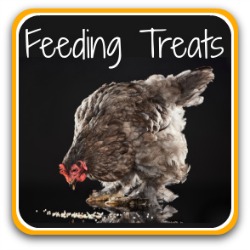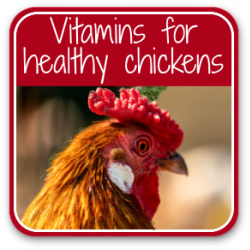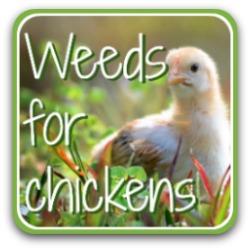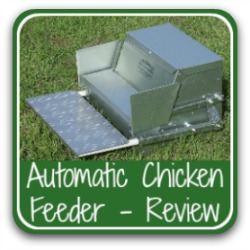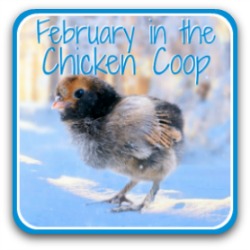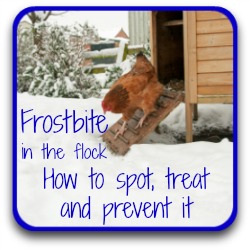Can chickens eat apples?
A guide to benefits, risks and treats.
Can chickens eat apples? The short answer is yes, but with one important caution. While apples are packed with nutrients that can boost your flock’s health, there’s one part you should always avoid.
In this guide, I’ll share five properly researched, proven benefits of apples for chickens, explain how to feed them safely, and give you some easy treat ideas your flock will love as much as mine do – plus a special recipe for extra spoiling!
🪶 Featherlight Takeaways.
Quick insights from this article – especially helpful if your flock is eating windfalls and you need key facts at a glance.
- Apples provide Vitamin C, pectin and antioxidants that support chicken health.
- Apple peel and pulp are especially nutritious.
- Avoid apple seeds – they contain compounds that release cyanide.
- Chicks can eat apples too, but only in tiny amounts.
- Apples should be fed as a treat: no more than about 10% of the diet.
Please note: This page is written as general information only. It is not intended as medical or veterinary advice and should not be taken as such.
If you're worried about your chickens' health, you should always see your veterinarian.
Are apples good for chickens? 5 proven benefits.
1. A boost against stress and disease.
An excellent source of Vitamin 'C', apples are proven(1) to help chickens fight disease, particularly during stressful conditions such as excessive heat(2).
2. The peel is the best bit.
Don’t throw away the skin! Apple peel contains even more antioxidants than the flesh, and has been shown to reduce "bad" cholesterol fats while improving the "good" fats(3). That can influence the cholesterol balance in your hens’ eggs.
3. The pulp helps healthy tummies!
Apple pulp (the solid remains after pressing juice) is packed with fibre, which helps the gut lining absorb nutrients more efficiently(4). In other words, apples can help your flock get more out of everything they eat.
4. Pectin power.
Pectin, especially rich in apple pulp, is an immune-system booster with anti-inflammatory properties(5) and has been shown to be particularly good at preventing obesity in poultry(3, 5) – a known cause of Sudden Chicken Death Syndrome. Stronger immune systems mean healthier, longer-lived chickens.
5. Fermenting apples adds extra magic!
Fermented apple products (like apple cider vinegar) bring additional benefits: fewer harmful bacteria, improved gut balance, and help against problems like coccidiosis and salmonella.
 I planted an apple tree so my flock can enjoy windfalls in the autumn.
I planted an apple tree so my flock can enjoy windfalls in the autumn.Do chickens like apples?
Most do, but just like people chickens tend to have their favourite treats.
Some will peck away happily, others might turn their beaks up and wait for something juicier. Mine, for example, go wild for watermelon and persimmons, and only nibble apples when nothing better’s on offer.
The best way to find out? Offer a few slices and see what happens.
Remember: apples, like any treat, should make up no more than about 10% of your flock’s diet. Too many treats can lead to malnutrition or sudden weight gain.
Make sure they’ve had their balanced feed first, and think of apples as an occasional extra rather than an everyday snack.
🐥 A note from my flock: my hens are generally happy on a hot summer’s day when I give them some cold grated apple. They can be picky though: Miss Gertrude still prefers watermelon when given a choice!
 Miss Gertrude tends to prefer watermelon!
Miss Gertrude tends to prefer watermelon!Can baby chicks eat apples?
Yes, but only in tiny amounts.
Chicks grow fast and need a carefully balanced chick starter feed for strong bones and healthy development. Apples are very high in fibre, and too much can upset their small digestive systems, leading to diarrhoea.
If you’d like to offer chicks a taste, keep it to the odd sliver once in a while, always alongside their regular feed.
Can chickens have a whole apple?

Yes, with one important caution: the seeds.
Apple seeds contain a compound called amygdalin, which releases a form of cyanide when crushed(6, 7).
In large amounts, that can be harmful to chickens. In reality, a chicken would have to eat a lot of crushed seeds (around a teaspoon’s worth) before it became dangerous(8). Most chickens won’t get anywhere near that many.
If you have apple trees in your run, don’t panic. A chicken pecking at the odd windfall is very unlikely to eat enough seeds to cause a problem. In fact, I have apple trees in my run and my chickens eat the flesh and avoid the core and seeds.
But when you’re preparing apples as a treat, it’s safest to remove the core and seeds first.
Where to source apples for chickens.
Good news: apples don’t have to be expensive! Here are some easy (and often free) ways to find them:
- Grow your own: planting apple trees gives you a reliable, chemical-free supply in spring and autumn.
- Windfalls: gather apples that drop in autumn. A few wormholes are fine (your chickens will enjoy digging out the worms!), but avoid fruit that’s mouldy.
- Neighbours and friends: many people are glad to give away surplus apples before they rot.
- Shops and markets: ask your greengrocer or supermarket for misshapen or "past their sell-buy date" apples. Wash them first, as they’re likely to have been chemically sprayed.
- Foraging: look out for apple trees in hedgerows or woodlands. We have wild apples along our roadside shrubbery, and are happy for passers-by to take them. Rather that than have them rot.
What makes a mouldy apple?
Of the three apples below, the one on the left has brown rot – see the mould on top. I would not feed this to my chickens.
The one on the right looks partly rotten. I would probably feed this, but if the rot is too extensive I'd cut it out first.

How to prepare apples for chickens.
However you feed apples, keep these rules in mind:
- Remove the seeds.
- Leave the peel on – it’s the most nutritious part.
- Pulp is excellent for gut health.
- Keep it to no more than 10% of their diet. This amounts to something like no more than three or four apples per week, per flock of six chickens.
- Clear up leftovers before roosting time to avoid attracting pests.
Simple, quick ways of preparing apple treats.

- Slice and scatter apple pieces on the ground.
- Core an apple and hang it on twine at head height.
- Fill a cored apple with coconut oil and seeds for a DIY treat.
- For festive fun, string apple chunks with grapes, mozarella balls and cherry tomatoes for a hanging "treat garland".
- Add a splash of apple cider vinegar to their water for an extra boost. See this article about ACV for more detail about how much and when.
Frequently Asked Questions.
Can chickens eat apple seeds?
Can chickens eat apple seeds?
It’s best to avoid them. Apple seeds contain a compound that releases cyanide when crushed. Chickens tend to avoid them anyway, and one or two seeds won’t hurt.
Just don’t feed them deliberately.
Can chickens eat cooked apples?
Can chickens eat cooked apples?
Yes, but avoid adding sugar. Stewed or baked apple (without seeds and sugar) can be given in moderation as a soft treat.
Can chickens eat apple peel?
Can chickens eat apple peel?
Yes – see this part of my article. Peel has been proven to be one of the most nutritious parts of the apple for poultry. Leave it on if you're preparing cooked apple as a treat.
Can chickens eat apple cores?
Can chickens eat apple cores?
Yes, but remove the seeds first. The fibrous core of the apple is fine for your chickens to peck at.
Can chickens eat mouldy apples?
Can chickens eat mouldy apples?
No. Worms are fine (chickens love them!) but mould can be dangerous for poultry health. See this section for a visual explanation.
How many apples can chickens safely eat?
How many apples can chickens safely eat?
Apples should only ever be a treat, and no treat should make up more than 10% of your flock's diet.
A good rule of thumb is to offer no more than three or four apples per week for a flock of six chickens, after they’ve had their regular feed.
This keeps their diet balanced and avoids malnutrition from too many sweet extras.

More healthy chicken food.

Sources and further reading.
A lot of "facts" you'll find on the internet are often people's individual views, based on inaccurate information repeated from poor quality sources.
The information I provide in this article and others is based not just on my own experience, but on evidenced facts from scientific, peer-reviewed research and books from highly respected and experienced poultry keepers such as Gail Damerow.
Some of the trusted sources I have used in this article are these.
1. Hetzler, A: The Vitamin 'C' in Apples. Pub. Livestrong, 2022.
2. Van Hieu, T, et al: The application of ascorbic acid as a therapeutic feed additive to boost immunity and antioxidant activity of poultry in heat stress environment. Pub. Veterinary World, 2022.
3. Heidarisafar, Z: Apple peel waste as a natural antioxidant for heat-stressed broiler chickens. Pub. Journal of Tropical Animal Health and Production, 2016.
4. Erinle, T. J., and Adewole, D. I.: Fruit pomaces—their nutrient and bioactive components, effects on growth and health of poultry species, and possible optimization techniques. Pub. Journal of Animal Nutrition, 2022.
5. Ávila, G, et al: Anti-inflammatory activity of citrus pectin on chicken monocytes' immune response. Pub. Journal of Veterinary Immunology and Immunopathology, 2021.
6. Bolarinwa, I, et al: Determination of amygdalin in apple seeds, fresh apples and processed apple juices. Pub. Journal of Food Chemistry, 2015.
7. Opid, P.M., et al: Nutritional and Health-Related Effects of a Diet Containing Apple Seed Meal in Rats: The Case of Amygdalin. Pub. Journal of Nutrients, 2017.
8. Wiemayer, S. N., et al: Acute oral toxicity of sodium cyanide in birds. Pub. Journal of Wildlife Diseases, 1986.

